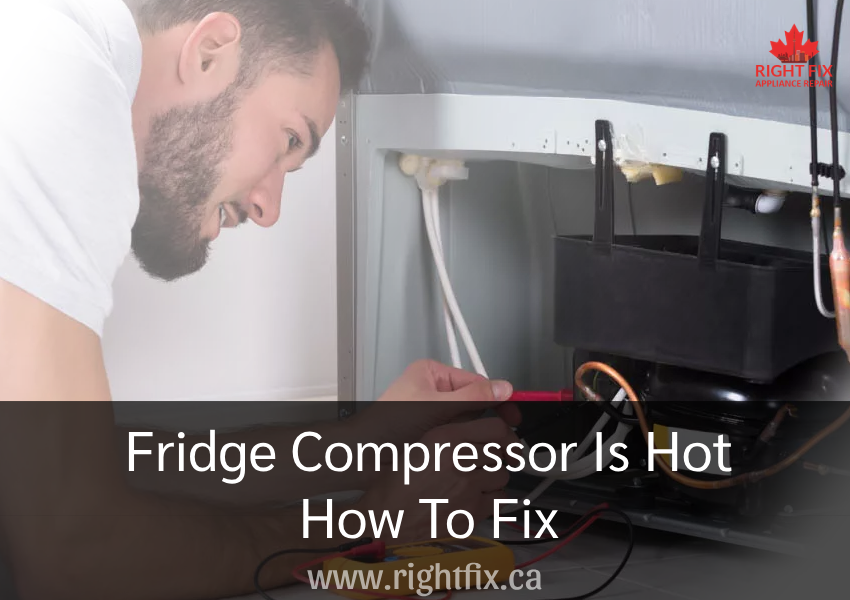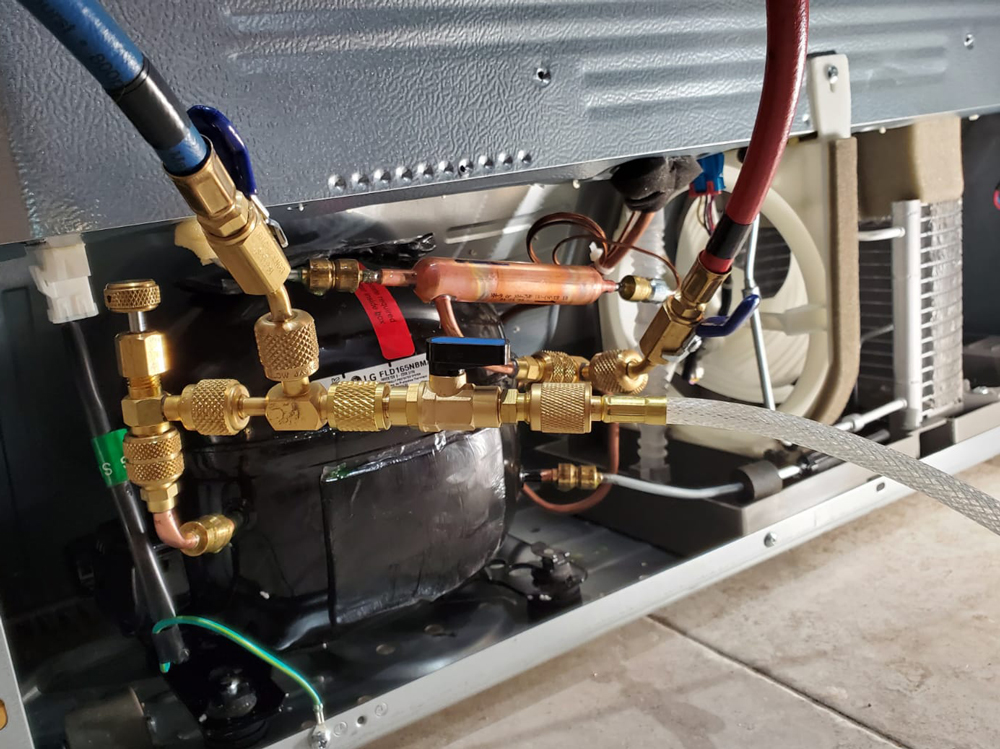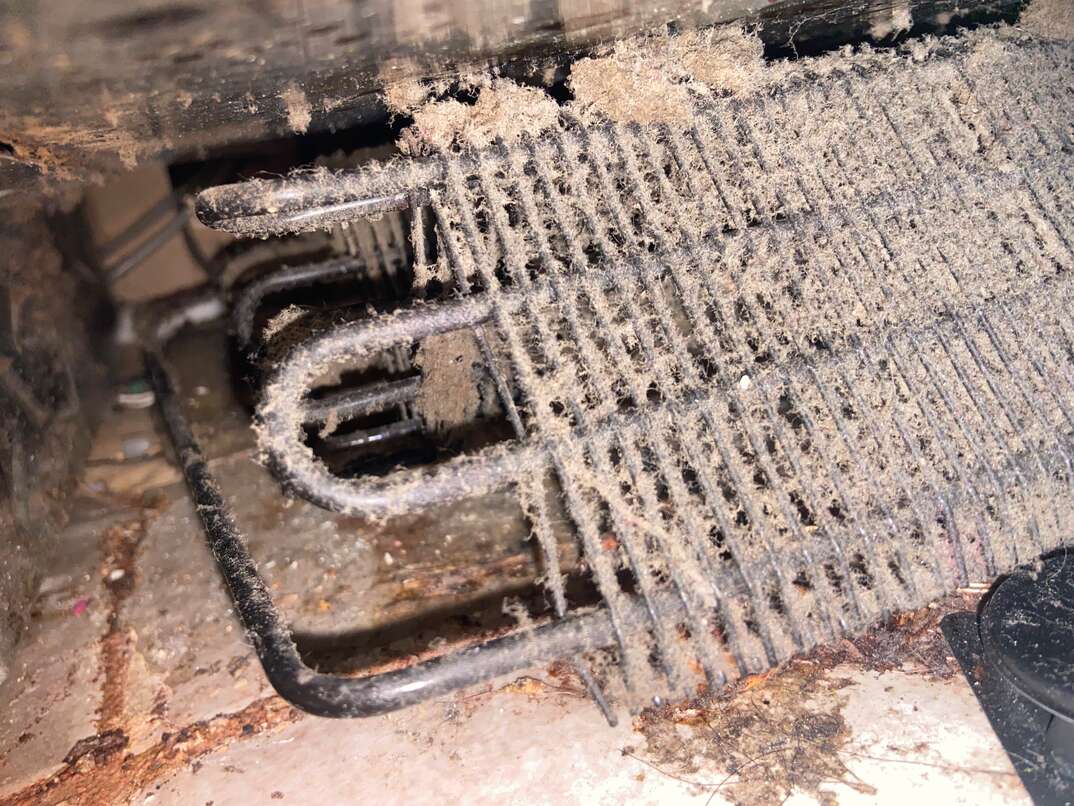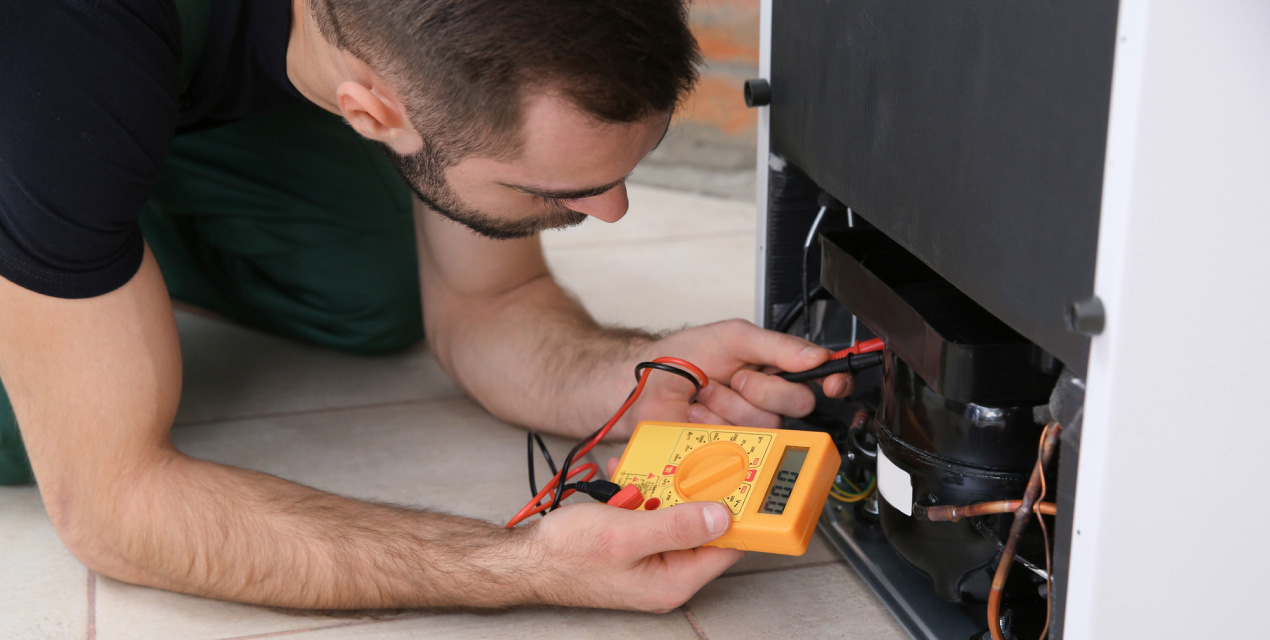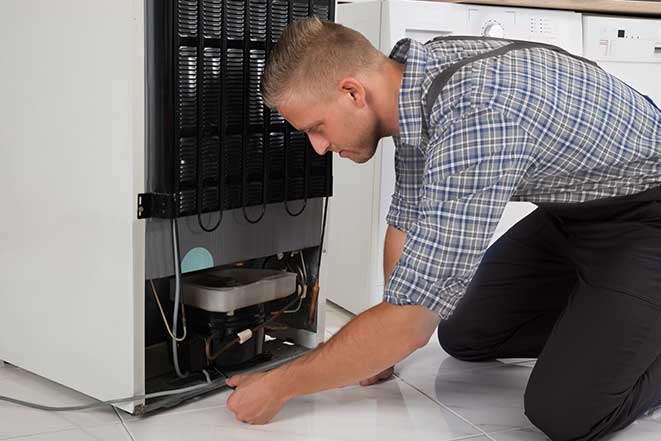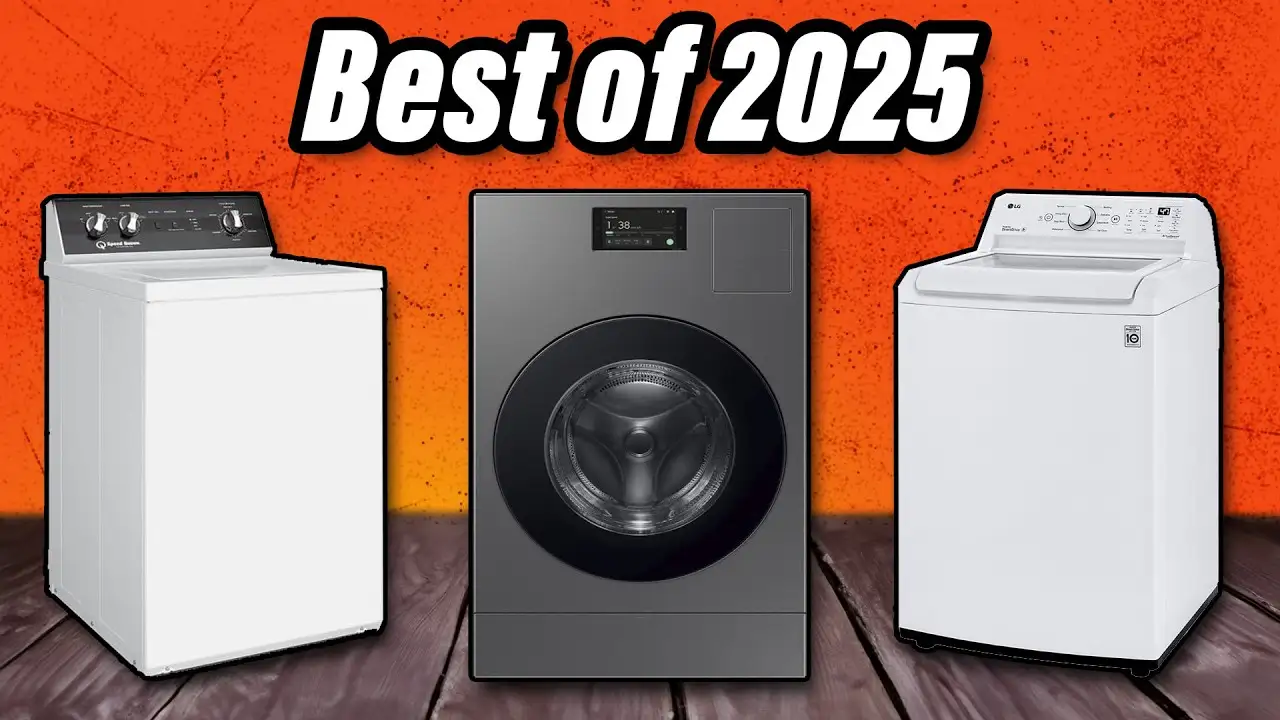Fridge Compressor Is Hot – How To Fix?
In the chance that you observe that the compressor of your refrigerator is hot, this could show a more broad issue requiring support. Keeping up with the coolness of your refrigerator relies for the most part upon the compressor, subsequently a flawed one might cause shortcoming or even all out disappointment. This instructional exercise will go over why a refrigerator compressor could turn out to be extremely hot, how to fix it, and what preventive advances you could take to stay away from additional issues. Contact professional refrigerator repair technician from RightFix
Refrigerator Compressor Too Hot? Causes and Solutions
Your refrigerator's compressor has to be swiftly identified and addressed if it becomes too hot. The primary causes of your compressor heating up are broken out below along with solutions.
About Refrigerator Compressor
Refrigerator Compressor
The center of the chilling system of your refrigerator is its compressor. It packs the refrigerant to switch it from gas over completely to fluid, then, at that point, runs it through the condenser loops to produce heat. The compressor ensures that your refrigerator keeps up with the right inside temperature.
Compressor Work
Drawing low-pressure refrigerant from the evaporator, the compressor packs it into a high-pressure gas then, at that point, conveys it to the condenser curls. Once more the refrigerant next cools, transforms into a fluid, and starts the cycle. Should the compressor become exceptionally hot, the refrigerator's ability for proper cooling could endure.
Common Causes of a Hot Compressor
Poor Airflow
One often occurring because of your refrigerator compressor's heat is inadequate air flow around the device. Refrigerators require room to dissipate heat; when they are positioned too near the wall or other objects, the airflow is limited, which heats the compressor.
Dirty Condenser Coils
Should the condenser coils—found at the rear or bottom of the refrigerator—become unclean, their effective heat dissipating capacity suffers. Dust or trash blocked coils compel the compressor to work harder, which might lead to extreme heat.
Faulty Thermostat
A broken thermostat could make the compressor work consistently, overheating results. Should the thermostat neglect to advise the compressor to stop when the refrigerator arrives at the appropriate temperature, the compressor will exhaust and turn out to be excessively hot.
Overloading the Refrigerator
Refrigerator overloading may tax the compressor. Tight packing of the refrigerator reduces airflow within, which increases compressor effort to maintain the cold temperature.
Refrigerant Issues
Should a leak in the system be too low, the compressor will find it difficult to sustain the required pressure. Trying to offset the absence of refrigerant, this strain might cause the compressor to overheat.
Signs of a Failing Compressor
An overheated compressor might indicate issues with your refrigerator. These typical indications point to a compressor issue:
Frequent Cycling
Short cycling is the condition wherein your refrigerator compressor goes on and off on a regular basis. Since the compressor is always trying to maintain the refrigerator's temperature, this behavior could lead to overheating.
Unusual Noises
Unusual sounds include humming, buzzing, or rattling might come from a failed compressor. These sounds indicate that something isn't working as it should, and the compressor could be trying to run effectively but finding difficulty.
Increased Energy Bills
Working harder to cool your refrigerator, an overheated compressor uses more electricity. Should your energy expenses suddenly rise, an overworked or defective compressor might be the cause.
Inconsistent Temperatures
Your refrigerator may not be as chilly as it should from a heated compressor. Should you find that certain refrigerator sections are warmer than others or if the temperature swings, this might point to a compressor trying to keep the appliance cold.
Solutions and Preventative Measures
The following fixes and preventive actions help to solve an overheated compressor:
Ensure Proper Ventilation
-
Make sure an ample room surrounds your refrigerator to allow for appropriate ventilation.
-
To enable the heat to disperse, keep the refrigerator at least two to three inches apart from cabinets or walls.
-
Make sure nothing blocks the ventilation grills so as to prevent obstruction of the airflow.
Clean the Condenser Coils
-
Unplug the refrigerator and at least twice a year clean the condenser coils.
-
To clear the coils of any dust or trash, run a gentle brush or a vacuum. Inefficient heat release prevented by dirty coils causes the compressor to overheat.
Check and Replace the Thermostat
-
Unplug the refrigerator and at least twice a year clean the condenser coils.
-
To clear the coils of any dust or trash, run a gentle brush or a vacuum. Inefficient heat release prevented by dirty coils causes the compressor to overheat.
Avoid Overloading
-
Steer clear of cramming your refrigerator too full of food items blocking ventilation. Maintaining constant cooling from the refrigerator depends on proper airflow inside it.
-
Store food so that air may flow easily; avoid putting hot food straight into the refrigerator because this drives the compressor to run harder.
Call a Professional
-
It's necessary to hire a professional if your refrigerator compressor keeps overheating even with the following repairs.
-
Examining the compressor, looking for refrigerant leaks, and fixing or replacing any broken components falls to a professional technician.
Conclusion
A heated refrigerator compressor is obviously a sign that something isn't working as it ought. Typical reasons include bad thermostats, filthy condenser coils, inadequate ventilation, or refrigerant problems. Early diagnosis of the issue will come from knowing the symptoms—such as odd sounds, regular cycles, or uneven temperature. Often the problem may be resolved with basic fixes such as coil cleaning, guaranteeing enough airflow, and thermostat check-up. If the issue continues, however, you should see a professional technician to avoid further refrigerator damage.
Early identification of the underlying cause of an overheated compressor will help you to maximize the lifetime of your refrigerator and guarantee its continuous performance.
REFERENCES
- Khan, Md Imran Hossen, and Hasan MM Afroz. “Effect of phase change material on compressor on-off cycling of a household refrigerator.” Science and Technology for the Built Environment 21.4 (2015): 462-468. https://www.tandfonline.com/doi/full/10.1080/23744731.2015.1023161
- Wu S., Song J., Shen G. Study on the Contribution of Compressor noise to Refrigerator Overall Noise. – 2016.
https://docs.lib.purdue.edu/icec/2436/
Location we Service
- Ajax
- Alliston
- Aurora
- Bolton
- Bradford
- Brampton
- Brantford
- Burlington
- Caledon
- Cambridge
- Concord
- East York
- Etobicoke
- Georgetown
- GTA
- Guelph
- Halton Hills
- Hamilton
- Innisfil
- Keswick
- King City
- Kitchener
- Kleinburg
- Maple
- Markham
- Milton
- Mississauga
- New Tecumseth
- Newmarket
- North York
- Oakville
- Orangeville
- Oshawa
- Pickering
- Richmond Hill
- Scarborough
- Schomberg
- Stouffville
- Thornhill
- Toronto
- Unionville
- Uxbridge
- Vaughan
- Waterloo
- Whitby
- Woodbridge

